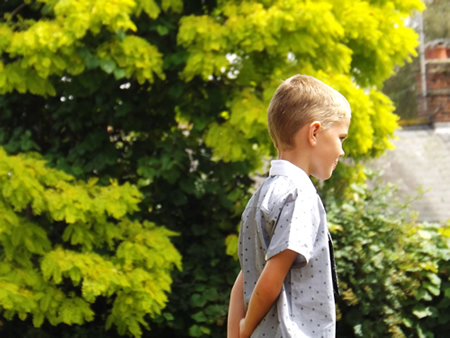Acceptance
Understanding is the first step to acceptance, and only with acceptance can there be recovery.
JK Rowling
Acceptance creates psychological safety. The focus is on acceptance of internal experience – the thoughts, feelings, wishes, beliefs, desires, & hopes that each person carries inside themselves. In accepting the internal experience of the other, we are communicating our understanding of this experience, that we are comfortable in knowing it & that we are not going to disregard or challenge it. Your experience is your experience. When parenting children, we may not tolerate particular behaviours, but we need to accept the experience underneath this behaviour. Behaviours displayed by the child may be evaluated; the child himself is not.
When we think of acceptance, however, it can raise more questions than answers. What are we accepting? If we accept, are we being too lenient or tolerant of misbehaviour? How will a child learn if we ‘merely’ accept? What do we mean by acceptance? The central message is that accepting the inner life of children, alongside unconditional love, is at the heart of the parents relationship with their children.
When a child’s inner life is fully accepted it will have a profound influence on his behaviour. Behavioural conflicts are easier resolved, but such conflicts are also less likely to occur in the first place. Paradoxically, when you focus only on behavioural goals & consequences, then conflicts & ‘behavioural problems’ often increase & your influence over them decreases.
When you focus more on accepting the inner life of your child, including differences between his inner life & yours, behavioural conflicts & ‘problems’ tend to decrease. Acceptance of your child, of his inner life, is central in ensuring that your child will become fully engaged in the process of learning through inter-subjective experiences.
Inter-subjective experiences are those in which the subjective experience of one member of the pair influences the subjective experience of the other. Inter-subjectivity is being open, perceptive, engaged, & accepting the experience of the other. If you do not accept your child’s experience, your child is likely to hide their experience from you. You are then unlikely to be able to assist them in making sense, deepening & organising the experience they have, of self, another person or an event.

When a child is not confident that the parent will accept his/her inner life, they begin to hide thoughts, feelings, wishes, memories & intentions from them. This leaves the child trying to make sense of what is happening in their life and, more importantly, who they are, without help. The child is left to try to manage difficult situations on their own. When a child is alone with their inner life, they are less likely to develop the habit of reflecting on it, wondering about it or understanding it. The child does not know what he/she thinks, feels or wants. They may be able to factually remember an event but not the experience of the event.
The child can not develop words for their inner life & are not able to communicate their experiences to others. A vicious circle develops in which they become more isolated from both others & their own inner life. The child lives with uncertainty about who they are; their sense of self is often disjointed, incoherent & filled with gaps. When your child’s inner life is accepted by you, they are more likely to take interest in it, to begin to understand it & to communicate it.
In communicating their experience of themselves or an event, they become open to your response to that experience. This is what inter-subjectivity is all about. The parent notices the child’s experience, without evaluating it; experience is not right or wrong, it just is. The parent then shares their own experience of the child with them. In this way the parent influences how the child organises their experience. This is characterised by openness, acceptance, curiosity, & empathy. The child becomes open to the way his/her parents experience him/her & the world. This is the core of parent’s influence on the child’s development.
Acceptance refers to an attitude of open engagement with your child. You are aware of how they are with you & how you are with them. You allow your simple awareness to dominate your experience. You are not trying to change them, you are simply aware of how you are together. Without this experience of acceptance it is more likely that your child will become defensive. They might experience your communications as an evaluation of them, & will seek to self-protect and preserve. They may become angry, hostile or self blaming. All of these take away from the relationship. In being open to your child’s experience, you are allowing this to have an impact on you, to influence you. Their experience then has meaning for you.
Understanding their experience will affect how you communicate this to them. This is turn affects how they experience you. Accepting brings inter-subjectivity to life. Acceptance is easier said than done, especially if you did not experience this very much yourself as a child. Acceptance is hard when your child’s behaviour is challenging. It is hard when you are tired & have ten other responsibilities facing you. Hope is that you accept yourself when you have difficulty experiencing acceptance for your child. With self-acceptance, it is easier to once again experience acceptance for your child. When you accept your child’s thoughts, feelings, wishes, perceptions, intentions, memories & judgements, they are much more likely to accept your boundaries on their behaviours. If you honestly communicate to them that it is fine to disagree with you, to think that you are unfair or wants what you don’t want; then your child is more likely to meet your behavioural expectations. If you suggest that your differences of thought, feeling & wishes indicate that they are wrong & you are right, they will more likely resist your expectations.
(Taken from PACE: Dan Hughes)
← Back to Resources